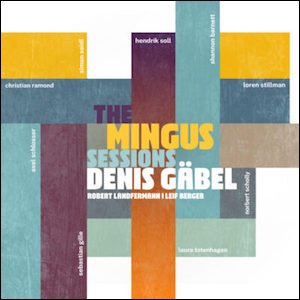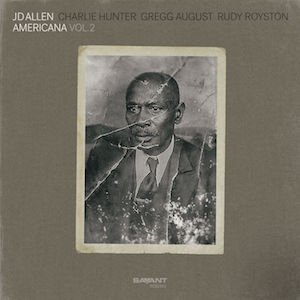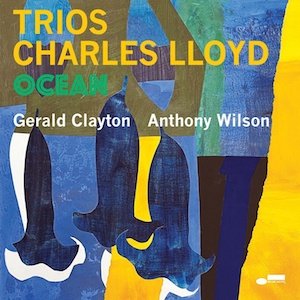Label: Mons Records, 2022
Personnel - Denis Gäbel: tenor saxophone; Robert Landfermann: bass; Leif Berger: drums + guests.
German saxophonist and composer Denis Gäbel brings his arrangements to fruition in The Mingus Sessions, a celebration of the 100th birthday of the late mighty bassist Charles Mingus. Ten of his most emblematic tunes were chosen to be presented with new outfits by Gäbel’s working trio - featuring bassist Robert Landfermann and drummer Leif Berger - which welcomes one guest for each song.
The first three cuts are particularly outstanding. Things are stirred fast with “Orange Was the Color of Her Dress”, which is initially boosted by the super-groovy bass escapisms of Landfermann before Gäbel ekes out the main melody with infallible inspiration. He and guest pianist Simon Seidl are sufficiently risk-taking in their solos to capture our attention. “Jump Monk” increases the liveliness through sax-trumpet dialogues with just drums as a sponsor. The clear brass sound is a consequence of Axel Schlosser’s flawless embouchure, and then Leif, straddling between Max Roach and Elvin Jones, also broadens his rhythmic routines into well-articulated phrases.
The third track doesn’t need an introduction because it’s the fabulous “Fable of Faubus”. Inflicting bracing melodic chops over a swinging tapestry, altoist Loren Stillman joins the bandleader at the front. After their respective solos (with Gäbel catching the tail of Stillman’s last phrase) and a bass improvisation, they embark on a vigorous horn duel.
Whereas “Work Song” is gracefully complemented with a second bass player (Christian Ramond), “Open Letter to Duke” showcases guitarist Norbert Scholly’s uplifting six-string locomotion over a hard-swinging tapestry. There are plenty of twists on this one, with the quartet adding bluesy, balladic and even Brazilian flavors to the recipe.
If the readings of “Remember Rockefeller at Attica” and “My Jelly Roll Soul” are not particularly memorable, then the result is quite different when it comes to “Goodbye Pork Pie Hat”, a superlative ballad taken to heaven by the tenors of Gäbel and Sebastian Gille. Their vocabulary can easily go from soothing to luxuriant.
The Mingus Sessions is a likable album whose tunes are sculpted with devotional spirit and a signature style that reveals the musical quality of its author.
Favorite Tracks:
02 - Jump Monk ► 03 - Fable of Faubus ► 10 - Goodbye Pork Pie Hat








































